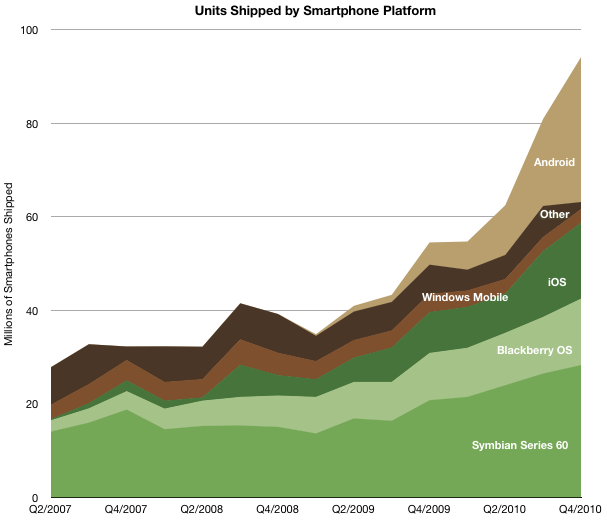Vic Gundotra of Google tipped off the world two days in advance that on Feb 11 Android would play no part in Nokia’s strategy. To be sure, Elop said that Nokia didn’t choose Android because of “differentiation challenges and commoditization risk” (begging the question of how these challenges and risks are mitigated by licensing another openly available OS).
But I won’t weigh the merits of one module vs. another. Rather, the more pertinent discussion should be on why license instead of build. Clearly, Nokia threw in the towel. Not because they could not build, but because their building processes could not create greatness.
But can greatness ever come from modularity? I’ve argued that it can’t. I’ll maintain that argument as long as what is being built is not good enough. In other words, as long as innovation remains relevant, improvements will be absorbed and rewarded. Once innovation exceeds what can be absorbed, the basis of competition will shift to convenience and price which are best served with a modular business architecture.
Android is a fast follower. The first Android prototypes looked like Blackberries because that was the input paradigm of 2006. When capacitive touch was shown to be a better input method, Android reacted swiftly. When app stores created a new medium Android reacted swiftly. When the iPad demonstrated that computing can be done in new settings, Android reacted. At such time when there will be nothing to follow Android will be the king of the last commoditized innovation, but as long as there is something worth inventing Android will be there to reproduce it.
This is not a judgement, but an observation: Nokia and Microsoft may not make an Apple but neither will Android ever create the future.


